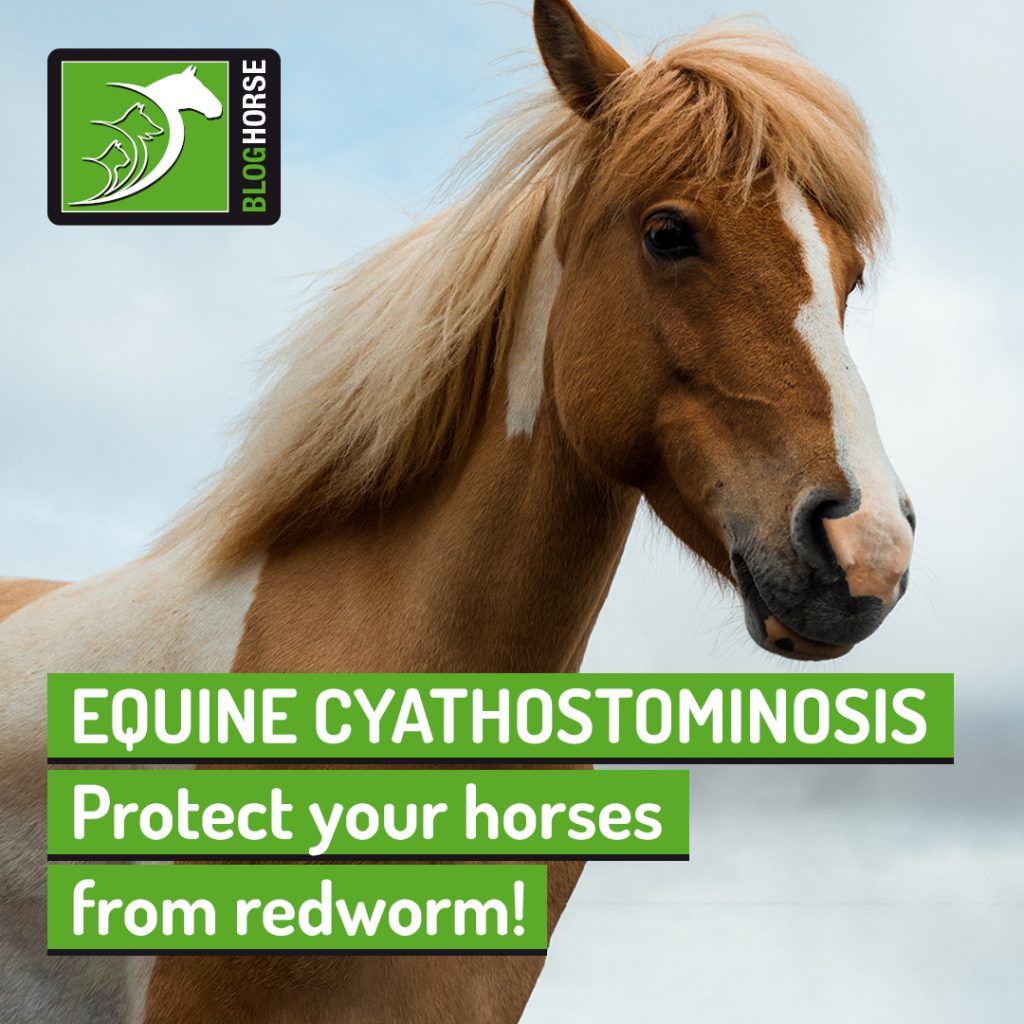
Protect your horses from redworm!

Cyathostomins are also called redworms, and they are one of the most common intestinal parasites in horses in the UK.
These parasites can cause severe issues in highly infested horses due to the mass migration of larvae from their burrows in the intestinal wall during early spring. This means that diagnosing, treating and preventing this disease is vital for the health of your herd.
Read our blog to learn more about protecting your horse and yard from these small parasites.
What signs can I spot in my horses?
Due to the lifecycle of cyathostomins, the ingested larvae will produce cysts in the intestinal wall, where they will wait for the right time to emerge.
As they migrate out of their cysts, often in vast numbers, there is the chance for significant damage to the large intestine, and you can find horses with:
- Sudden weight loss;
- Lethargy;
- Diarrhoea;
- Colic;
- Oedema.
In severe cases, horses may die suddenly! Animals under five years old may be more predisposed to having more significant clinical signs, though this disease can affect horses of any age.
The destruction and severe inflammation of the intestinal mucosa after the larvae emerge might make treating larval cyathostominosis a long process, and your vet is likely to suggest supportive treatment as well as a tailored deworming programme.
How can I help protect my horses from larval cyathostominosis?
Depending on the weather, redworm larvae are likely to migrate out of the mucosa during the late winter or early spring. They are often inactive during the winter months, and as they start emerging causing problems in your horses, their detection can be difficult.
Diagnosing larval cyathostominosis can involve blood testing, faecal analysis, ultrasound exams and other tests as your vet works to rule out other common causes of diarrhoea in horses.
As mentioned above, treatment involves a deworming protocol that is specifically made for your horses and their needs. Unfortunately, many parasites have developed resistance to the dewormers that we have available, so we must use these drugs correctly, in a controlled, efficient manner and avoid overusing them.
Another way to help protect your animals is by reducing the chances of them contacting these parasites in the first place. This might involve improved pasture and manure management as well as avoiding overcrowding in the yard.
If you are struggling with redworm and other types of parasite disease in your horses, it's vital to work closely with your vet to find the best yard management and deworming protocols to reduce the parasite load.
Would you like to know more about horses? Check our Equine Courses:
Equine courses
Published: 22 Feb 2023
Read the previous article: Can dogs have allergies?

